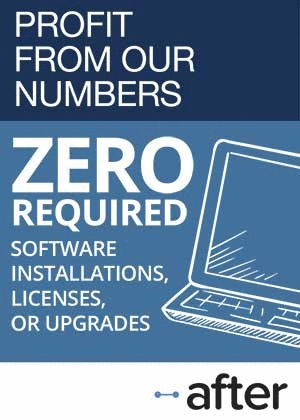Extended Warranty Conferences:
As the old saying goes, two's company, but three's a crowd. With the Warranty Chain Management Conference a fixture in the spring, two conferences are competing to become the industry's preferred event in the early fall. This year, they were three weeks apart, but next year, there's only three days between them.
Once upon a time people said there were no industry events for service contract or warranty industry professionals to attend. Now there are too many, and there's not enough room in the calendar for them all. So one of them is going to have to go to sleep, or change its tune.
The Fifth Annual Extended Warranty & Service Contract Innovations Conference was held in Nashville on September 15-16, and the Global Warranty and Service Contract Association's First Annual Conference on Service Contracts was held in Chicago on October 6-8.
That left only three weeks between them, at a busy time of year, which forced many people to choose to attend only one of them, or neither of them, because their travel budgets and their boss' patience would be exhausted by just their attendance the Warranty Chain Management Conference held every spring.
Three Days Between Them
And indeed, the 11th Annual WCM Conference is scheduled to convene about six months from now, on March 10-12, 2015 at the Hilton Miami Downtown. However, the GWSCA announced that next year its conference will take place in Chicago on September 23 & 24, 2015, while organizers said the Nashville show will take place on September 28 & 29 next year. That leaves only three days between them next time.
In response, many industry professionals are saying that two's company but three's a crowd. Because the Chicago and Nashville events have only a weekend between them next year, they say they're going to have to choose to go to one or the other, but not both.
Warranty Week, we should note, was a media partner for both conferences, and its editor spoke at both events. Our newsletters carried advertisements for both sides in this skirmish. We've also been a supporter of the annual WCM conferences, and will continue to be. And unless these industry conferences turn out to be on the same day in different cities, we'll continue to support them all.
We interviewed half a dozen people who went to the conferences in both Nashville and Chicago this year. We asked them which conference they preferred this time around, and whether they planned to attend both events again next year. To encourage their candor, we agreed to not use names or other identifying details.
Several said that one of the biggest problems in Nashville was the venue itself. Last year, the Warranty Innovations conference chose the Hermitage Hotel, which by all accounts was fine. But this year, they chose the nearby Union Station Hotel, and reserved a conference room that simply wasn't big enough to hold the 110 people who eventually turned up to watch the speakers and panel discussions.
Presentations were delivered in the McKinley Room, which was closest to the street, and which used to be an entrance to the building, which used to be a passenger train station. So there were several stairs cutting right across the middle of the room, which was otherwise flat, and the podium and screen were at the lowest point down in front. Unfortunately, instead of enhancing sight-lines the way that stadium seating would do, this layout made it very difficult for people in the back to see or hear what was going on. And most of the people were in the back, with overflow seating lining both the back wall and the hallway near the exit.
Traditional Ballroom Format
In Chicago, organizers chose the Millennium Knickerbocker Hotel near the John Hancock Tower as their venue. It was a little bit outside the downtown loop area, but not terribly out of the way. One of the locals said it was one of the wealthiest sections of the city, wedged between the Miracle Mile and the lakefront beach.
Presentations were delivered in the Georgian Crystal Ballroom with a flat floor and a raised stage, so everybody could see both the presenters and the screen. The problem there was the layout of the hotel itself, with meals in one small room across the lobby and up one set of stairs, and exhibits in another small room up different flight of stairs and around the corner. That impeded networking, because people found it easy to wander off to their rooms or just sit in the lobby during the long breaks.
In contrast, at Union Station, lunch and the evening reception were held on a spectacular and spacious outdoor balcony overlooking the train yard, just across the lobby from the McKinley Room. Unfortunately, when the freight train's whistle blew, conversation became impossible. And when that noise stopped, people began to mutter about the little earthquakes that shook their beds each night as the midnight special passed by.
At the Knickerbocker in Chicago, which used to be a speakeasy run in the 1920s by Al Capone's brother and the Playboy Towers Hotel in the 1970s, 90 people made the small dining room look full during the evening reception. However, that room gained a bit of cachet when we found out it used to be Hugh Hefner's private dining room.
After the reception ended at 7pm, some people did head off into the nightlife in pursuit of more history lessons. However, we can't escape the feeling that the GWSCA missed a golden opportunity to organize a social event at a Chicago sports venue or even at a famous pizza restaurant. Then again, Nashville is "Music City," and even though the hotel was within walking distance of the all the sights, nothing was organized there either.
Organizational Skills
An executive who attended both shows said he liked the Chicago show better, for several reasons. First, he said he preferred Chicago because of the venue. "The set-up for the presentations in Nashville was not very good. The audio was bad. The location of the screen was lower than much of the audience, and wasn't viewable."
Second, he preferred the people running the show in Chicago. "I thought Terry [Hawkins, GWSCA president] and Paul [Wojcicki, GWSCA secretary] did a better job of making sure things were where they needed to be," he said.
Third, he preferred Chicago in terms of content, but only slightly. "Both were quite similar," he said, with their almost exclusive focus on service contracts. "I would have preferred more warranty content."
Finally, he said he preferred Chicago, because he knows the event was put together in far less time than Nashville. Basically, a rift developed between the GWSCA and the Nashville show organizers over the summer, so in response the GWSCA put together its competing conference in just a few months. "And I think with a year run-up to the next one, they'll have a better chance of getting a broader variety of presenters," the executive said.
The choice of cities also helps, he added. Chicago is a major airport hub, with lots of direct flights to and from 210 different cities. But it's also close to numerous manufacturing hubs and retail headquarters, so many industry people could drive in quite easily for the day.
Nashville is a beautiful and fun tourist town, but it's not close to much. Ironically, to get there some people had to change planes at O'Hare Airport.
A sponsor said his company may choose Chicago over Nashville next year, for one simple reason. "I think that conference may continue to grow, being coupled with the GWSCA, and because of the location," he said. In contrast, he thinks the Nashville conference has reached its peak after five years.
And he thinks many other warranty professionals will have to choose one over the other next September, because of their proximity on the calendar. He said such a schedule would challenge his travel budget, let alone his prospective customers. Bottom line: he can make it to Miami in March for WCM but he's leaning towards just Chicago in September. "I think there are enough attendees for two conferences -- one spring and one fall -- but I don't think we can support three."
Sees Every Show
In contrast, an industry veteran who's been to every WCM show, all five Warranty Innovation shows and the inaugural GWSCA show said he plans to attend all three shows again next year. "You've got to go kiss some frogs and see some clients," he said. "You've got to be seen. You've got to be visible in my business," which is service contracts. "They're the only shows out there in this industry."
He said from his perspective, the crowd seemed larger in Nashville and they stayed longer too. There were about 110 people in the McKinley Room at the beginning of the show and maybe 60 at the end. In Chicago, they started out with 90 and ended with 40 or so.
Still, he gave a slight edge to Chicago primarily because it was organized by an industry trade association. Especially with a controversial topic such as extended warranties and service contracts, if you can't speak to an entire industry at least you can speak to an industry association.
The New Guy
Another attendee said Nashville and Chicago were his first and second service contract industry trade shows, respectively. And he said that someone else also recently asked him, "as the new guy," what he thought about them.
He said he thought the GWSCA conference appeared more professional than Nashville. He liked the venue better, and he thought the content was better too. However, he said he thought Nashville had the edge in terms of talking about how to sell service contracts in a changing marketplace. "Nashville had a more focused panel," he said. Then again, he said he really liked the actuarial and analytics discussions in Chicago.
"If I have to pick a winner, I'm going to pick Chicago," he said. "But really, I think they were both very well-done. They both had a very holistic view of the industry, so it wasn't just legal compliance or just a sales conference. And they both got participants, whether they came from a sales or a legal arm, or a compliance role or even actuarials, to think more holistically about the business. And at the end of the day, whatever silo you're in, that certainly makes you a better performer."
Next year, the new guy said he hopes to go to at least one of the shows in September. "It would be hard to pick," he said. He said he wants to see the agenda for each, and then to decide which is more appealing.
In the other industries he's worked in, such as mortgage banking, the new guy said that when there are three or four industry events per year, they've learned to differentiate themselves both in terms of themes and timing. Maybe, he said, if there are to be three annual events in the service contract industry, perhaps one of them will have to drop the holistic focus and concentrate on a narrow topic. Maybe one will focus on auto. Perhaps one could focus on sales techniques? Or it could focus exclusively on legal and regulatory issues.
Then again, he added, the Service Contract Industry Council has its own annual meeting at the Wynn Hotel and Casino in Las Vegas next week, where the focus will be very squarely on recently enacted service contract and extended warranty laws and regulations. So perhaps we already have an option for those focused on legal and regulatory issues?
Networking Opportunities
Another industry professional who attended both shows said he was pleased with them both. But he noted that he sees them more as an opportunity to meet existing and prospective clients than as educational events.
"For us, we go to these things to network and to build client relationships, and to generate revenue," he said. "The more conferences, the better. But I think you'll get conference fatigue at a certain point."
He said the WCM is by far the best industry event. Second place is harder to pick. He said he hoped the GWSCA would build off the solid base it created at its first-ever event, building that into an even better event in the years ahead. And he agreed with the executive who said he thought the Nashville show had reached its full potential. But he'll go back again to each of them next year.
"I think the industry could use two conferences a year," he said. "So it's good for another one to pop up." But three? Even if he does end up going to them all, he admits he doesn't expect many others to do the same. It would be far easier to think about attending all three if one of them would move their dates, he suggested.
"We'll see what happens," he said. "I wish it could be three, honestly, if the industry was big enough. But I don't think it really is. I think the industry can handle only two conferences now. If there's a third, it has to be very focused on a specific niche, such as vehicle service contracts, that's very specific but wouldn't have as wide an attendance."
Industry Association Support
An administrator said he was quite concerned when he heard about the split between the GWSCA and Strategic Solutions Network, the organizers behind the Nashville show. He said he thought the rift would hurt the industry, as people took sides and chose one conference or the other.
For the most part, that didn't happen this year, he said. Attendance was good for both shows, and the content was good as well. Some of it was very similar. But the second day in Nashville wasn't as solid as the second day in Chicago, he said, and he also gives the edge to the GWSCA in terms of overall organization and logistics.
Next year, he said, he can't see going to three shows, especially if two of them are very close together. "If I had to make a choice, it would have to be the GWSCA," he concluded. "We think the long-term value would be going to the conference supported by the industry itself. It would not be even remotely feasible for us to attend both."
However, he added that he thinks the idea of WCM in the spring in a warm city and GWSCA in the fall in a windy city is absolutely something he can support. "I think it works perfectly," he said. "I think having them literally separated by six months is exactly the way to go. In terms of cost, logistics, and travel time, that works well for us."
Change of Format?
Another industry veteran said he said he would prefer if there were just one show next September. But he added that he would prefer a radical change of format of that show, to highlight future trends and shifts in the marketplace. "The industry has to go through some work in where is the value prop, and how do we serve the consumer?" he said.
"The world is changing," he said, but these trade shows aren't. "It's a lot of trade people talking to trade people. There aren't as many divergent views coming into the room. Why don't we bring in a group of customers and talk to them about how they feel about the products we offer? How do we put the customer's voice in the center of what we do? How do we change the dialog so it's about how our industry better serves the customer?"
He said he sees the same people, saying the same things. "How many things did you hear that were truly new and innovative?" He said he'd like to hear more about changes in the industry, in the product mix, and in the buyer demographics, and less about what each individual company is doing.
"Instead of staged presentations, how about live conversations about issues that face the industry?" he added. Why not convene a live focus group, where consumers who always buy and never buy service contracts explain their reasoning, and others in the middle explain what drives them to change their minds?
"The consumer in almost every vantage point is getting more control of their experience. Yet this industry is working really hard to retain control at a time when it has to give it up. If the industry doesn't fundamentally reinvent itself, it will cease to exist."








